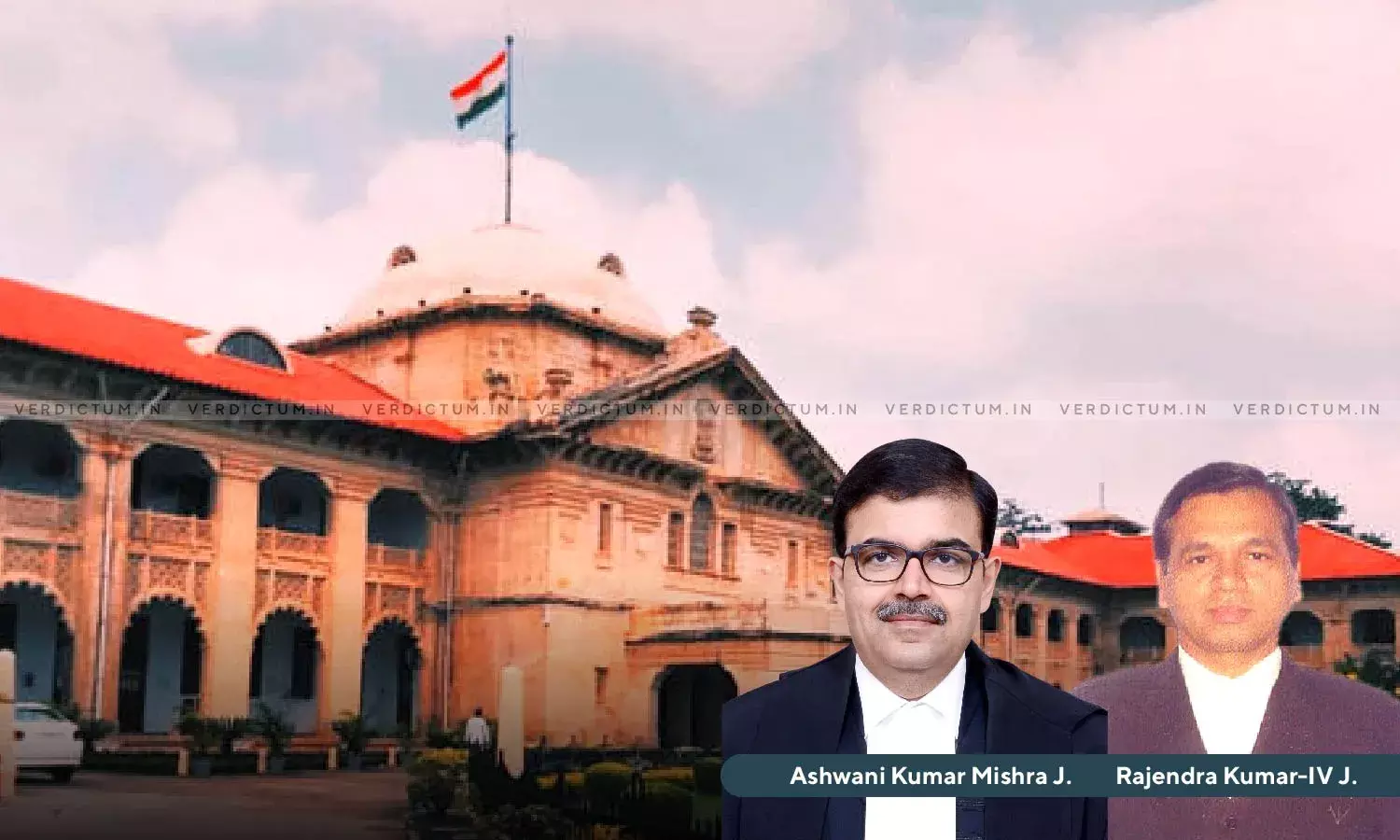Not Natural For Any Father To Stake The Honour Of Minor Daughter To Avenge A Dispute: Allahabad HC Upholds Conviction In Rape Case

The Allahabad High Court upheld the accused's conviction for raping an 8 year old girl emphasizing the credibility of the victim's testimony, stating that it alone was sufficient to establish the accused's guilt beyond reasonable doubt. The accused-appellant had filed an appeal against the judgment of IInd Additional District & Sessions Judge. The accused was convicted under Sections 363, 366-Ka, 376(2)(f) IPC, and under Section 25 of the Arms Act.
A Division Bench of Justice Ashwani Kumar Mishra and Justice Rajendra Kumar-IV while rejecting the argument of false implication remarked, “So far as the plea of false implication, it is not natural for any father to stake the honour of his minor daughter to avenge a previous dispute, that too by falsely alleging that she has been raped.”
The prosecution's case was that, the accused lured an 8-year-old victim and several other children into his car. He drove away with them but later released all the children except the victim. He sexually assaulted the victim and left her injured on the side of the road. The victim's father filed a written complaint, leading to the registration of an FIR. The victim was medically examined, and evidence was collected. After reviewing the evidence and hearing both sides, the trial court found the accused guilty and sentenced him.
Advocate Ashutosh Yadav appeared for the Appellant and Advocate Arun Kumar appeared for the Respondent.
In this appeal, the accused's counsel argued that there were no eyewitnesses, and the accused had been falsely implicated due to a prior dispute with the victim's family. They also mentioned contradictions in the victim's statement and requested leniency if the accused was found guilty.
The Court considered the arguments and evidence presented by both sides, noting that no defense evidence had been provided.
The Court noted that father of the victim, supported the prosecution but was not an eyewitness. He filed the FIR based on his daughter's account of the incident. His testimony was found credible and consistent. The Court further noted that a 13-year-old at the time of the incident, corroborated the prosecution's version.
The 8-year-old victim, provided crucial testimony, describing the accused's actions. She clarified that the accused raped her, and her statement was considered reliable, as it was recorded after assessing her capacity to understand and speak the truth. The Court emphasized that the victim's testimony alone was sufficient to establish the accused's guilt beyond reasonable doubt.
The Court rejected the defense's arguments about motive, minor contradictions, and discrepancies in the prosecution's case, noting that such minor variations did not undermine the prosecution's overall case. The Court added, “So far as discrepancies, variation and contradiction in the prosecution case are concerned, we have analysed entire evidence in consonance with the submissions raised by learned counsel and the witnesses PWs 1, 2, 3 and 4 supported the prosecution case as witnesses. All the four witnesses withstood lengthy cross-examination but nothing adverse material could be brought on record so as to disbelieve their statements. There is nothing in crossexamination which may render their statements doubtful. Naturally some minor contradictions and discrepancies have occurred in their examination but they do not go to the root of case.”
The Court referenced relevant legal precedents on child witnesses' competence and noted that the victim's testimony was credible. The Court said, “From the evidence on record as also the specific implication of accused by the victim herself, we find that the prosecution has clearly succeeded in establishing the guilt of the accused beyond reasonable doubt.”
The Court affirmed the accused's conviction and dismissed the appeal's merits. The Court held, “Upon careful consideration of the statement of witnesses especially the statement of victim we are of the opinion that trial court, after proper appreciation of evidence, has rightly convicted the accused-appellant under the alleged sections and we do not persuade ourselves to take a different view than that of trial court.”
The Court also modified the sentence, converting the life imprisonment under Section 376(2)(f) IPC to 14 years of rigorous imprisonment.
Cause Title: Sonu v. State of U.P., [2023:AHC:177326-DB]
Click here to read/download the Order


